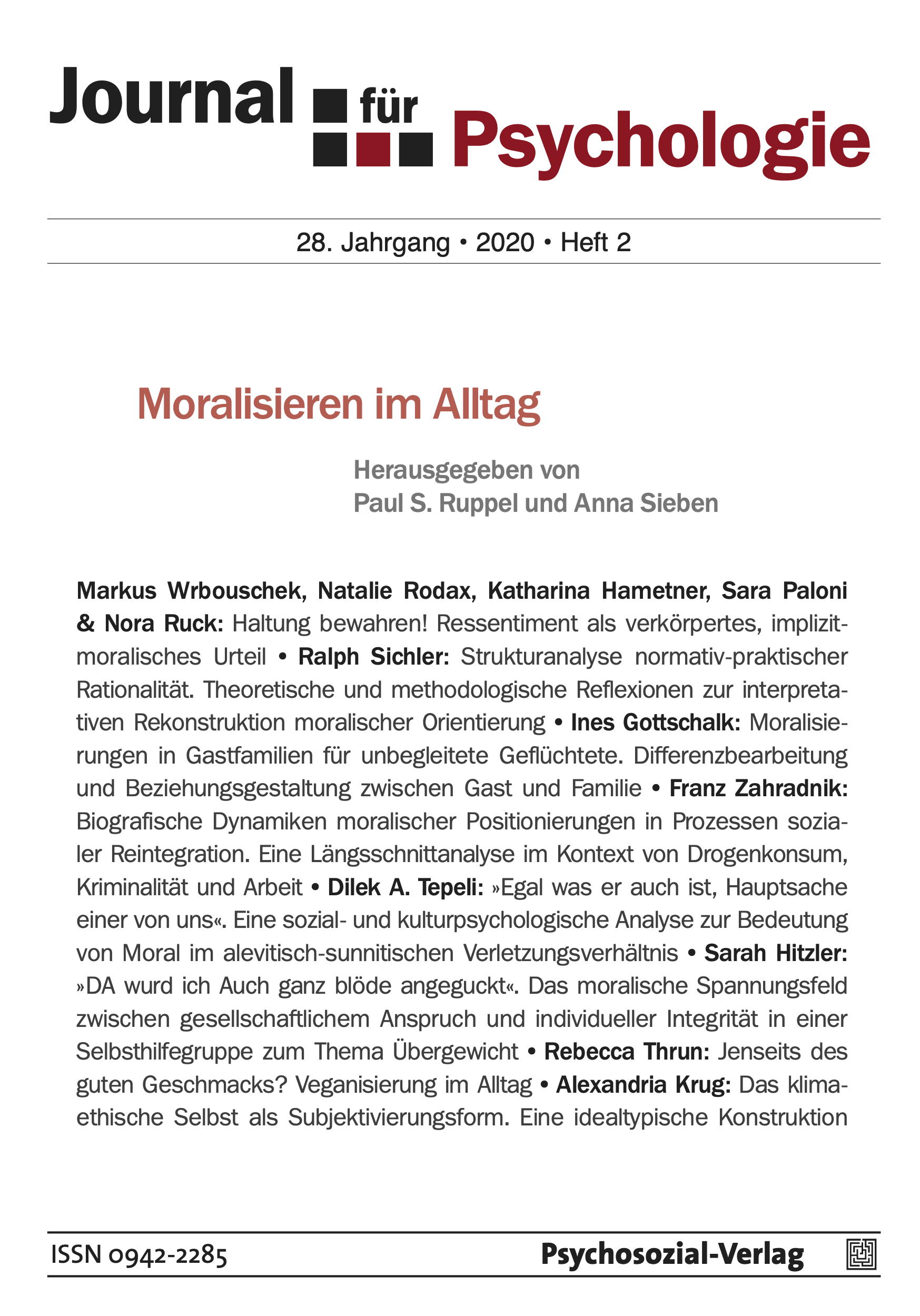Haltung bewahren!
DOI:
https://doi.org/10.30820/0942-2285-2020-2-12Schlagworte:
Ressentiment, Scheler, disclosive posture, moralische Emotionen, implizites WerturteilAbstract
Der Beitrag befasst sich mit der Affektgenese moralisch-welterschließender Haltungen und diskutiert diese mit Blick auf das Ressentiment. Dabei fassen wir das Ressentiment mit Rückgriff auf Scheler (1913, 49) als »dauernde psychische Einstellung«, die sich aus der Erfahrung eines (moralischen) Unrechts heraus entwickelt und sich in einer negativen Werthaltung gegenüber verschiedensten Objekten äußert. Anhand einer von uns konstruierten Fallvignette zeigen wir zunächst, dass sich eine präkognitive Einschätzung der Situation, als ein leibliches Zur-Situation-ausgerichtet-Sein, an einer anderen als der die Affekte eigentlich evozierenden Stelle entladen kann, und analysieren, wie diese Verschiebung hin zu einer moralisch-welterschließenden Haltung verstanden werden kann. Auf Basis von Schelers Theorie der Ressentimentgenese argumentieren wir anschließend, dass Ressentimentbildungen als eine spezifische Form moralisch-welterschließender Haltungen verstanden werden können. Abschließend diskutieren wir die in diesem Artikel fokussierte psychogenetische Betrachtung moralisch-welterschließender Haltungen mit Blick auf eine soziogenetische Perspektive. Rückbeziehend auf die Fallvignette greifen wir in einem Ausblick auf, wie bereits bestehende (und weiter zu entwickelnde) sozialwissenschaftliche Perspektiven und Konzepte genutzt werden können, um die psychoaffektive Analyse der geschilderten Situation in sozialund machttheoretischer Weise zu vertiefen.Veröffentlicht
10.12.2020
Zitationsvorschlag
Wrbouschek, Markus, Natalie Rodax, Katharina Hametner, Sara Paloni, und Nora Ruck. 2020. „Haltung Bewahren!“. Journal für Psychologie 28 (2):12-33. https://doi.org/10.30820/0942-2285-2020-2-12.
Ausgabe
Rubrik
Schwerpunkt
Lizenz
Diese Lizenz erlaubt die private Nutzung und unveränderte Weitergabe, verbietet jedoch die Bearbeitung und kommerzielle Nutzung. Weitere Informationen finden Sie unter: https://creativecommons.org/licenses/by-nc-nd/4.0/
Die Bedingungen der Creative-Commons-Lizenz gelten nur für Originalmaterial. Die Wiederverwendung von Material aus anderen Quellen (gekennzeichnet mit Quellenangabe) wie z. B. Schaubilder, Abbildungen, Fotos und Textauszüge erfordert ggf. weitere Nutzungsgenehmigungen durch den jeweiligen Rechteinhaber.



